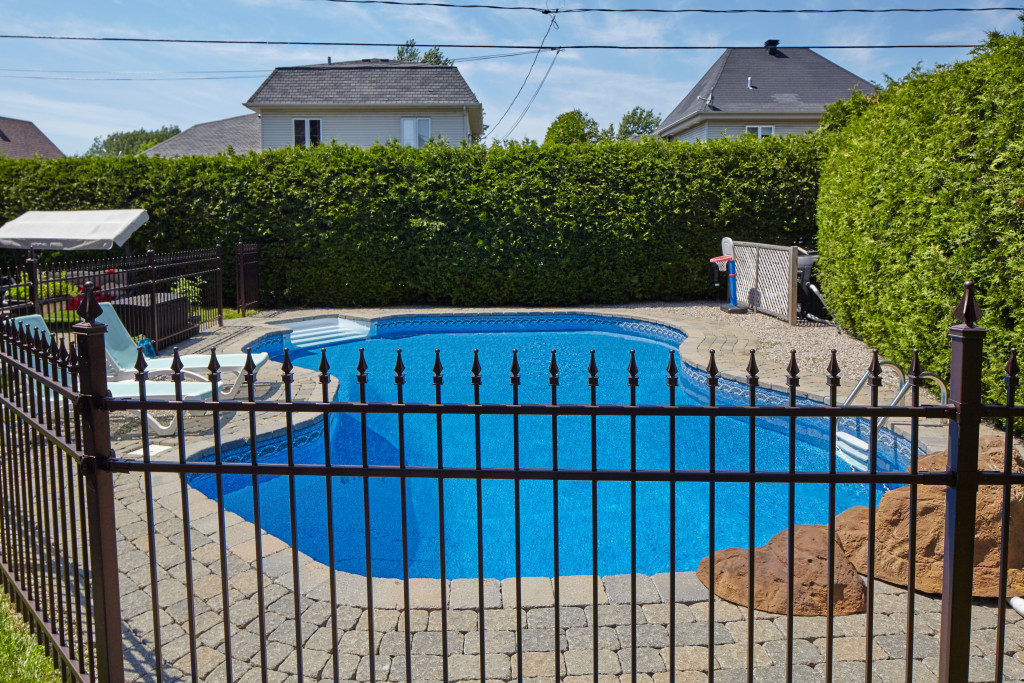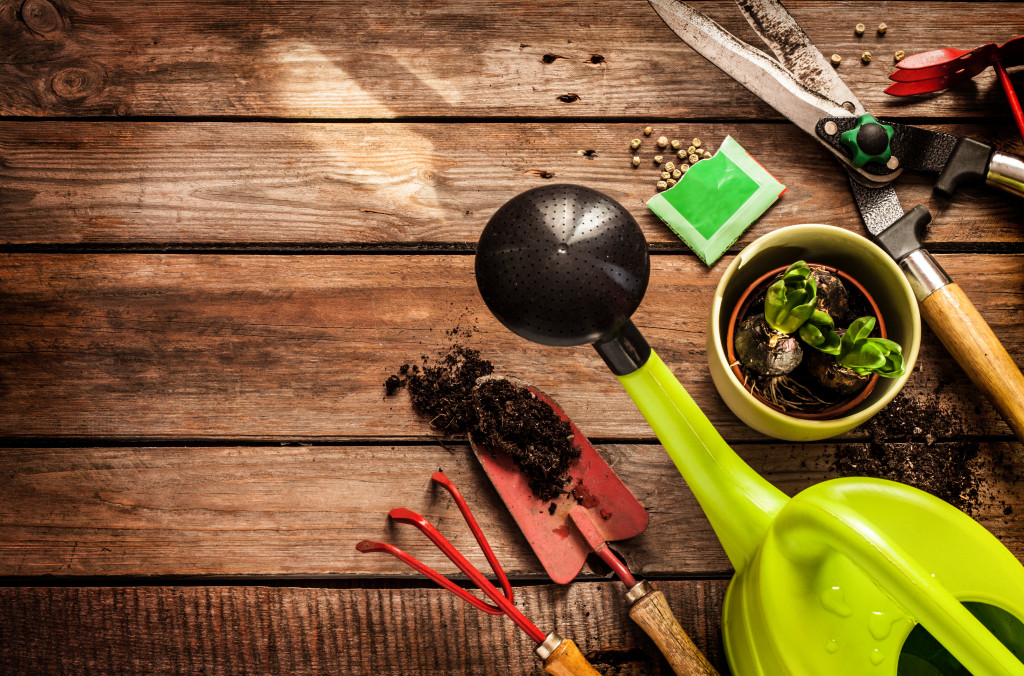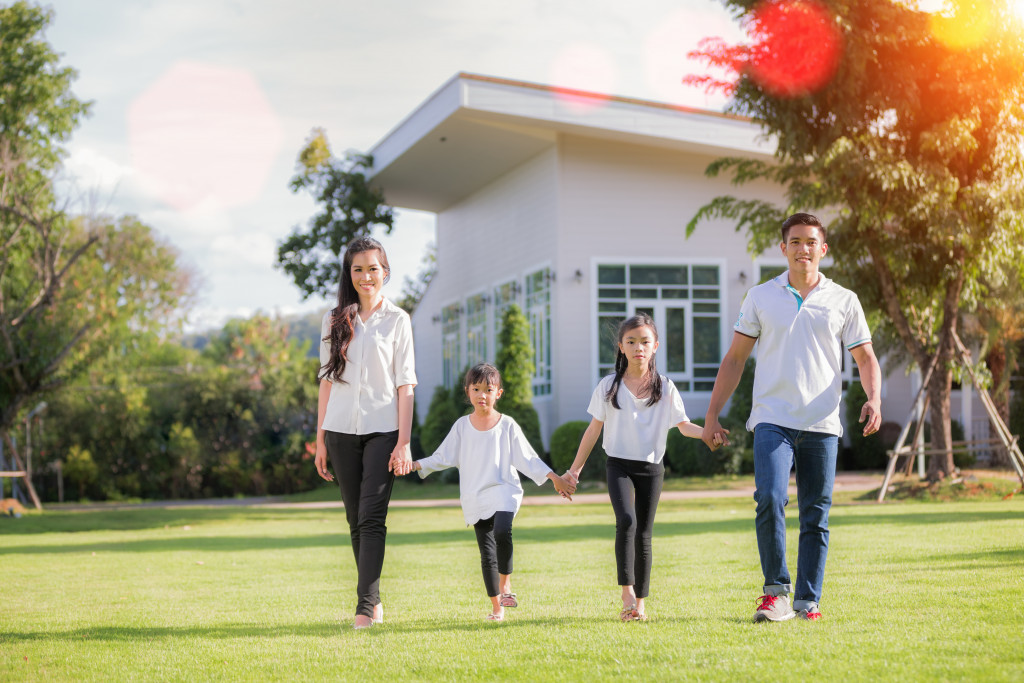• Fencing pools and installing gutter guards can help prevent accidental drowning.
• Teach children about pool safety, such as not running near the pool and wearing life jackets.
• Keep gutters clear of debris and check for damaged or hanging pieces that could be hazardous to your children.
• Block off unsafe caves or holes in your yard or property.
• Secure all tools and equipment when not in use.
As a parent, you want your children to always be safe. It’s essential to know the potential hazards outside your home to keep your children safe while they play outdoors. Here are hazards that every parent should be aware of and how to protect their children from them.
Unfenced Pools
If you have an above-ground pool in your yard, ensure it is always fenced off when not used. This would help prevent accidental drowning if a child wandered into the yard and fell into the pool. Fencing your pool area isn’t as difficult as it seems. Here are the steps you need to take to achieve this:
Choose the material you want to use
There are many options available, from wood to aluminum. You can also use a combination of materials if you’d like. Just make sure that everything is secure and meets local regulations.
Determine the size of the fence you will need
Measure your pool area and purchase a fence that matches those measurements perfectly. If the fence isn’t tall enough, you may want to add extensions or a higher gate to prevent children from climbing over it.
Install the fence

If you don’t feel comfortable doing this yourself, you can always hire a professional to do the job for you. Or, you can ask a friend or family member to help you out. When installing the fence, make sure that the posts are firmly secured and that all of the hardware is secure.
Test the fence
Check your work by pushing on it and making sure that it is secure. If it wobbles or isn’t safe, adjust accordingly until everything is right. You don’t want any accidents to happen.
By fencing your pool area, you can help prevent accidental drowning and give yourself peace of mind that your children are safe. Additionally, you should teach your children about pool safety, such as not running near the pool area, not diving in shallow water, and always wearing life jackets when playing around bodies of water.
Your Gutters
Your gutters, while an important part of keeping water off your roof and away from your foundation, can also be hazardous for kids. Make sure debris or leaves have been cleared out of the gutters before allowing kids to play around them, as they can get stuck there and cause a safety hazard. You may also want to consider installing gutter guards so that debris won’t accumulate in the first place. And if your gutters are damaged or hanging in a way that they may fall down, you should get them fixed or replaced right away. Just make sure you employ the help of a professional gutter replacement service provider. They can ensure that the job is done correctly and safely. They can also advise you on the best type of gutter for your home and how to maintain them properly.
Holes and Caves
Beware of holes or caves on or near your property, such as an old well or underground bunker. These areas can be dangerous for young children who may wander in without knowing what’s inside them. If you have any such spots on your property, ensure they are securely covered or blocked off so that kids cannot access them without adult supervision.
Unsecured Tools and Equipment

All tools and equipment should be securely stored away when not in use so that small children do not come across anything sharp or dangerous while outside unsupervised. Be especially careful when storing ladders, which could pose a choking hazard if left unattended around small children who may mistake it for something else entirely!
Being a parent means taking extra steps to ensure your children are safe, especially when they’re playing outdoors. From fencing off pools and unsecured tools and equipment to cleaning out gutters and covering up holes or caves on the property, there are many potential hazards outside of the home that you should be aware of to keep your kids safe. By following these tips and being proactive about safety measures around your property, you can help protect your most precious possessions—your children!
